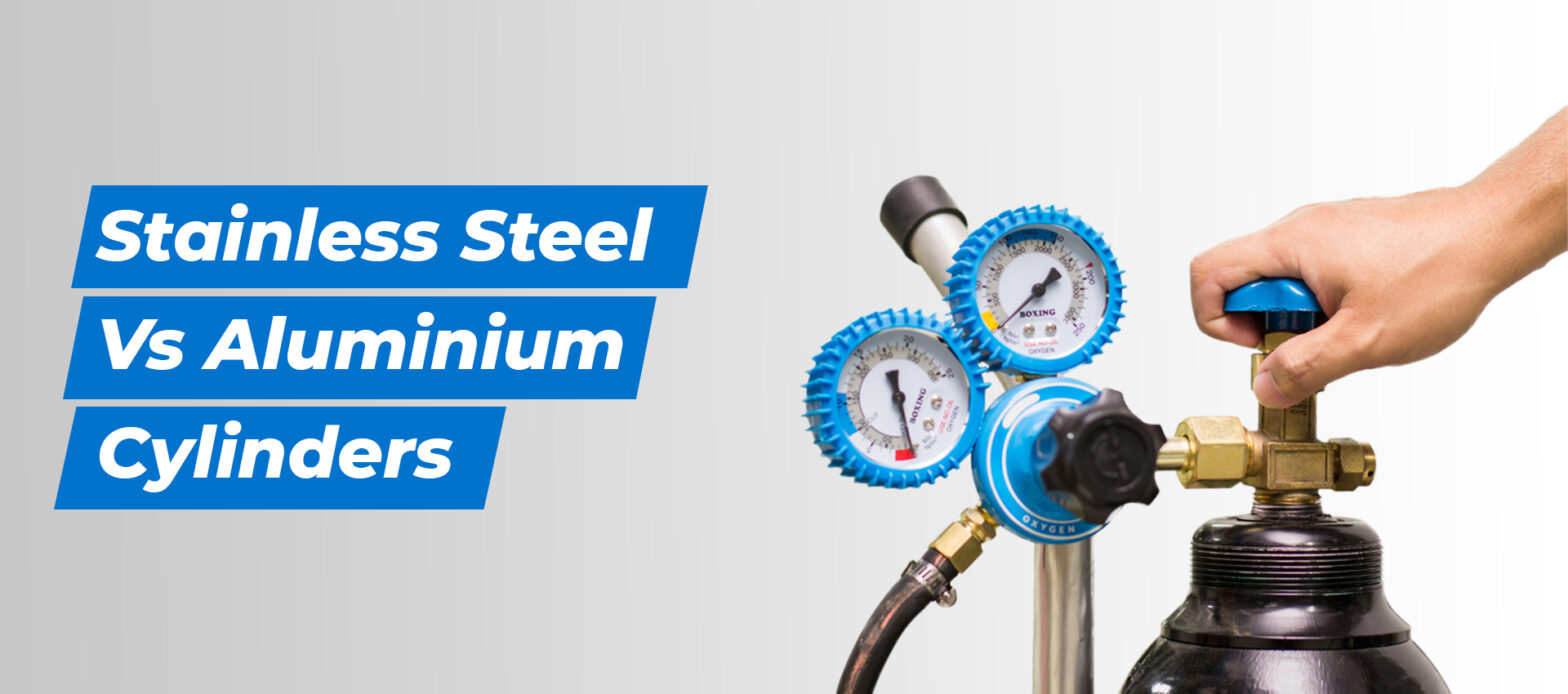
Steel and Aluminium cylinders both find use in storing pressurized gases like oxygen, air, nitrogen, helium etc. Nitrous oxide and carbon-dioxide liquefy at pressures to which cylinders are filled (at ambient temperature) and are therefore stored as liquids. Both materials are equally popular. However, they have certain distinct properties that make more suitable over the other. In the subsequent paragraphs we will analyse those properties for a comparative analysis.
Divers prefer Aluminium over steel cylinders as the latter has buoyancy issues at the end of the dive. Further, since steel cylinders are designed with a round bottom, they require a boot to be placed to make it upright before placing on any equipment. This boot acts as a trap for moisture and it is not removed regularly, it leads to corrosion due to the presence of water against the metal. This corrosion ultimately shortens the lifespan of the cylinder.
Further if moisture enters the cylinder, it can lead to interior corrosion, creating pits within the structure eventually leading to cylinder failure.
Aluminium cylinders, on the other hand, are lightweight, portable, easy to handle, corrosion resistant and non-magnetic. These cylinders are popularly used in hospitals for Anaesthesia machines, Laparoscopy machines, stretchers, Operation Theatres, Emergency Wards and Incubators.
An Aluminium cylinder is 40% lighter than a steel cylinder.
As compared to steel cylinders, Aluminium cylinders fail less often due to internal and external corrosion. Moreover, internal corrosion will deplete the oxygen content of the air which is a fatal deficiency. A study conducted by University of Rhode Island on cylinder internal corrosion revealed that ‘under equal condition of moisture in cylinders, Aluminium cylinders perform better in retaining air quality than steel cylinders.’
In the carbonated beverage industry, wet carbon-di-oxide causes severe corrosion in steel cylinders due to the formation of carbonic acid. It can also lead to cylinder failure if left unchecked. On the other hand, Aluminium is not affected by carbonic acid, hence corrosion is limited if Aluminium alloys are exposed to such environments.
In the medical industry, Steel and Aluminium cylinders are used to fill oxygen gas for use in hospitals. However, since steel cylinders are more susceptible to corrosion and rusting, thus oxygen taken from steel cylinder might contain iron particles making them unsuitable for medical use. Also, Aluminium cylinders are non-magnetic, hence they can be readily used in MRI centres & operation theatres. The various types of aluminium cylinders available on the market include high pressure cylinders, disposable/low pressure cylinders, and those used in various applications, including medical, homecare, scuba, beverages, fire extinguishers, sports and fitness, tracking, paintball, IABP machine, soda machine, etc.
All in all, a comparative analysis of steel & aluminium cylinders reveals that Aluminium cylinders are more suited in multiple industries due to their lightweight and non-corrosive nature. The global aluminium cylinder market is projected to grow at a CAGR of 6.3% between 2023 and 2028 (source: https://www.expertmarketresearch.com/reports/aluminium-cylinder-market). The advantages of Aluminium over steel and its varied application across industries make it the more popular choice in the cylinder industry.
OxyMed offers a wide range of medical and industrial-grade cylinders to suit your specific needs. We are available 24x7 to address all your queries.